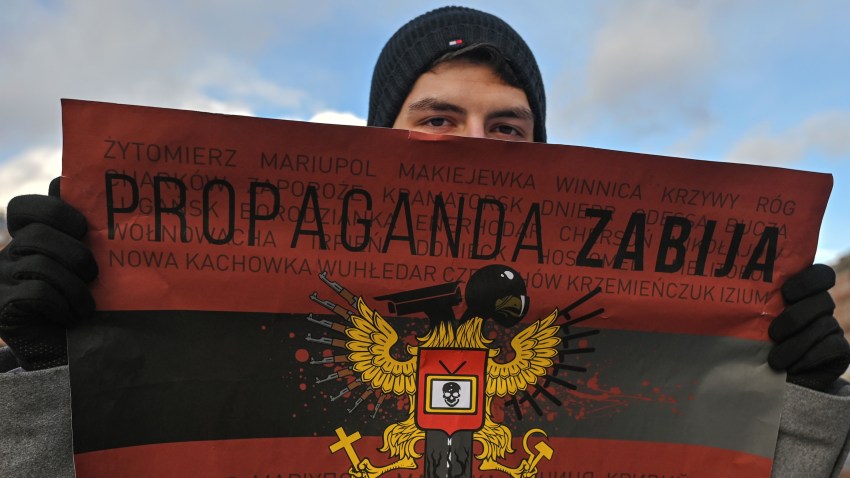Russia’s military invasion of Ukraine has become a geopolitical contest between Moscow and the West, with implications for the global economy, energy security and information technology. While tensions with Russia were not new, for many democracies on both sides of the Atlantic, Moscow’s war in Ukraine dramatically changed their perception not just of Russian aggression, but also of their ability to respond to it.
In areas of economics and energy, the policy solutions to disruptions caused by the war appeared to be relatively straightforward. They include measures like diversification of energy supply sources and government subsidies. But the realm of information security does not lend itself to similar quick fixes or short-term policy interventions.
Central and Eastern Europe, or CEE, which comprises more than 10 countries at varying levels of resilience to Russian disinformation, provides several hard-learned lessons in how Russian disinformation is used and how it might be countered.

